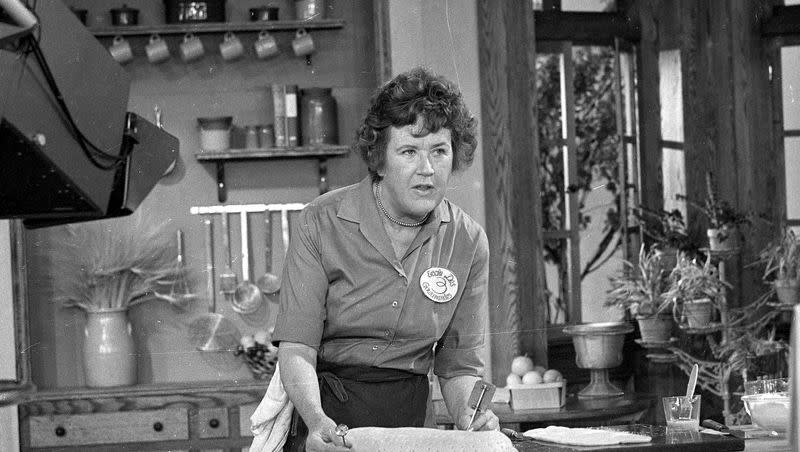The case for cookbooks in a digital age

When Julia Child first walked into the kitchen and onto the television screen, Americans were captivated by her unpretentious attitude toward cooking. As she effortlessly navigated cooking disasters on air and was adorned by her signature pearl necklace, she became a symbol for home-cooked meals.
Her famous cookbook, “Mastering the Art of French Cooking,” spawned one woman’s blog and a critically-acclaimed movie, “Julie & Julia.”
Child lived in an era before the smartphone. She couldn’t locate dozens of recipes for virtually every dish by asking Siri. She was alive in an age of cookbooks.
When you can access free recipes at any point, is it still worth it to pick up a cookbook?
Related
As it turns out, cookbooks in the digital age still have immense value. Here’s why.
For one, as artificial intelligence takes over the internet, knowing that a recipe was vetted by a real person can help ensure you are not spending precious time and ingredients (i.e. money) on a recipe that’s not worth it. As Kate Gibbs wrote for The Guardian, sometimes recipes in cookbooks are tested upward of three times.
They’re tweaked, edited and perfected, so before you try your amateur hand at whipping up a delectable dish, you have some surety that it’ll go well. And when you’re working with a recipe that a real person has tested, they can often give you tips to achieve the best results, such as ricing your boiled potatoes before mashing to produce smoother, silkier and creamier mashed potatoes.
While there are plenty of cooking blogs where the recipes have been tested, it can be difficult to navigate which ones have been tested and which ones haven’t been.
Another reason to invest in a cookbook or two is because there are often general tips in cookbooks that will make you a better cook.
If you follow a bread recipe and constantly end up with gummy bread or bread that doesn’t rise quite right, it might be your technique that needs refining. A cookbook might teach you how to diagnose and correct your technique.
Take, for example, the cookbook “Salt Fat Acid Heat,” which breaks down cooking into the basic elements. Once you understand the way certain elements work together, you can walk away a better cook.
Using cookbooks can also simply be a delight. As Helen Rosner observed in an article for The New Yorker, some cookbook authors write in a conversational tone that can enchant and inspire readers.
A good cookbook is like any good book: it’s written well. If a cookbook is written well, you can step into the author’s world for a moment and catch a glimpse of the sentimentality of a recipe. Recipes are born in particular cultural moments and carry with them tradition and memories with great meaning to the person who developed the recipe.
Plus, recipes evolve over time.
As recipes are tried time and time again, advancing technology and changes in available ingredients can cause a recipe to morph and transform into an aberration of its original form — sometimes resulting in a version of a dish you like more than the original.
A good cookbook can capture this sentiment. It can take you on a journey through the recipe’s evolution and then, you can embark on your own journey with the recipe as well.
So, where should one start with a cookbook?
The first step is procure a cookbook. There are many types. Some are more general like the “Better Homes and Gardens New Cookbook” or Child’s “The Joy of Cooking.” These cookbooks are chock full of familiar, classic recipes that you can refine. Other cookbooks are more specific to a particular kind of cuisine, like the Italian cookbook “Essentials of Classic Italian Cooking.” There are some cookbooks that cater to a particular lifestyle, such as “Downshiftology.”
After you’ve picked up the cookbook you want to start with, read it cover to cover. No, really. Read the cookbook like a book.
You’ll be able to pick up on certain trends throughout the book and notice tips the author gives you. Reading it cover to cover also helps you gain familiarity with the varying levels of difficulty.
And that’s the point when you start cooking.
Begin with a recipe that you like or want to try, and taste it along the way. Taste your fresh ingredients (provided that it’s not an ingredient like meat that needs to be cooked to be edible) and learn to pick up on the flavors an ingredient adds to a dish. Think of ingredients like a dimension of a dish, adding flavor and texture and interacting with the other ingredients.
Then, you’ll be on your way to cooking from a cookbook. And who knows? Maybe you’ll take a journey through an entire cookbook.

